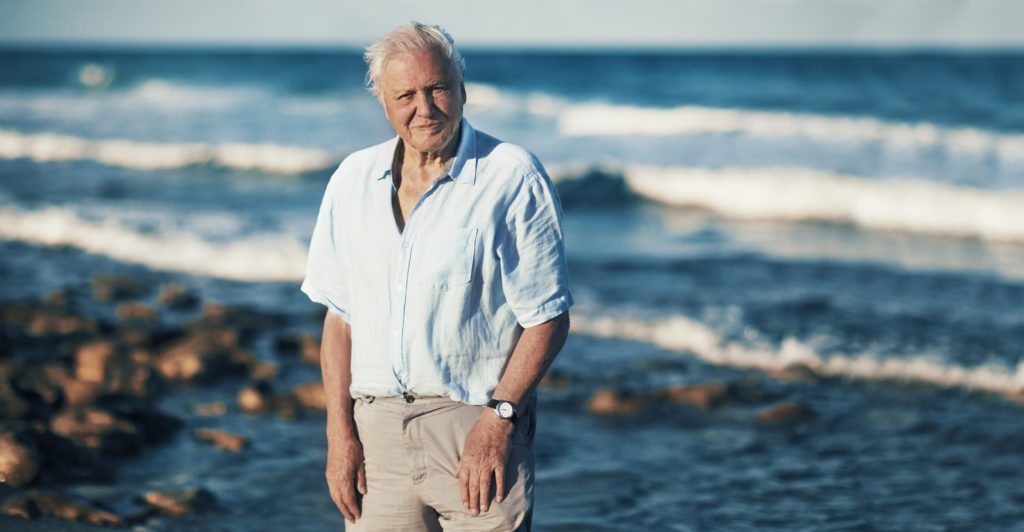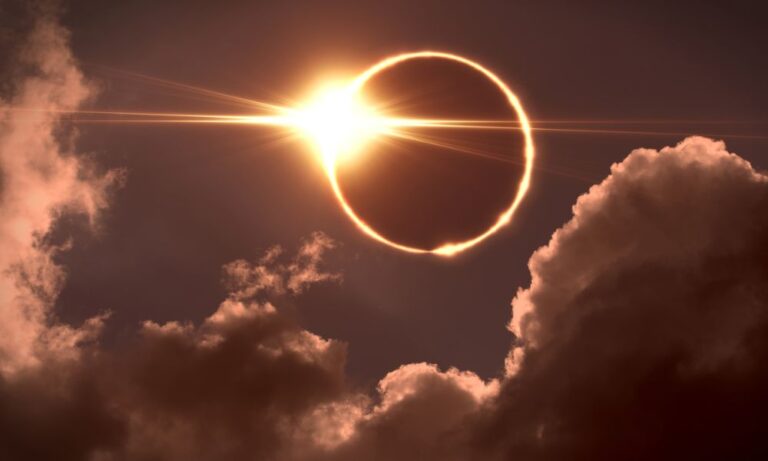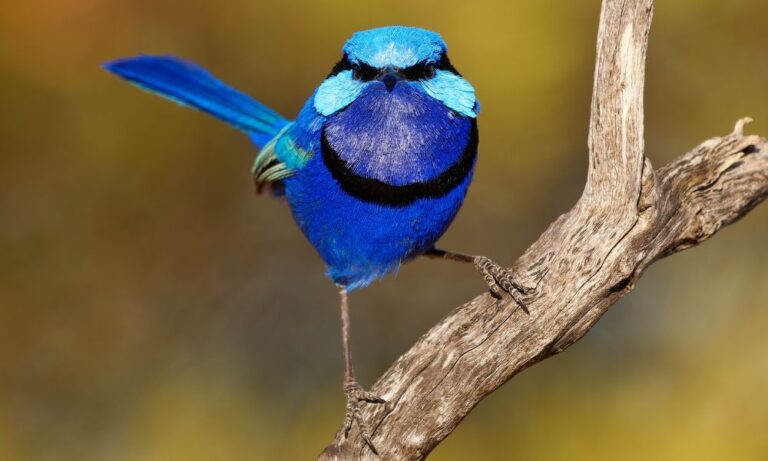On a late September day at London’s BFI IMAX cinema, a very special crowd has gathered. The BBC is launching Blue Planet II, the follow-up to its seminal 2001 programme that explored the deep seas. Guests in the audience include Oscar-winning musician Hans Zimmer and Radiohead guitarist Jonny Greenwood, who combined on the score, and – just for good measure – filmmaker Paul Thomas Anderson. His Royal Highness, the Duke of Cambridge, is also present, sitting next to the man who everyone wants to see: Sir David Attenborough.
The face of Blue Planet II, Sir David goes beyond the status of national treasure in Britain and perhaps the world. The only person to have won BAFTA prizes for programmes made in black-and-white, colour, HD and 3D, he began working for the BBC in 1952. It was the start of what would become a historic association with the channel and its Natural History department, with shows like Life on Earth, Planet Earth and, of course, The Blue Planet. A presence generations have grown up with, it’s no surprise that 40 per cent of Britons recently surveyed wanted him featured on the soon-to-be revised £20 bank note.
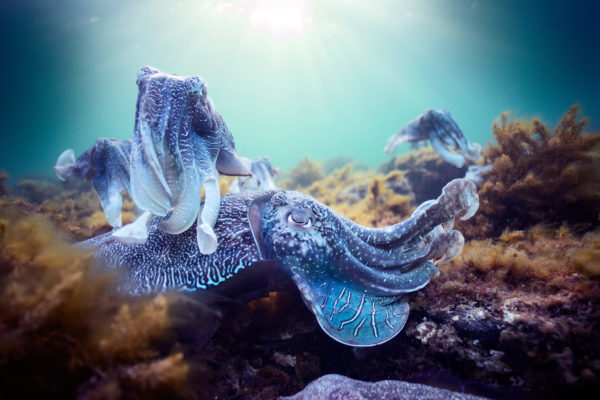
Masterful Storyteller
Blessed with a silken voice that has been described as “a true wonder of the world”, “David is without doubt that grandmaster storyteller of natural history,” says Mark Brownlow, the series producer for Blue Planet II. “He’s completely unique in what he can bring. His knowledge and authenticity is second to none, based on 50 years of broadcasting with natural history. He knows the subject inside out. He’s such a passionate speaker and such a masterful storyteller. People are just swept away by his wonderful delivery.”
It’s not hard for this to happen. Before the exclusive screening of ‘One Ocean’ – the first of the seven episodes of Blue Planet II – MiNDFOOD joins Sir David in the green room for a chat. He’s 91 years old – let that sink in for a minute – and still going strong. Dressed in grey trousers, a pale shirt and red tie, he slips his navy jacket on the back of his chair and begins to answer with boyish enthusiasm, his ever-whirring hands a blur of expressive gestures. His silver hair aside, the only time you’d ever consider his age is when he cups his ear to hear the odd question.
“Making natural history films is the dream job y’know,” he says. “I mean it really is the dream job. Going to exciting places. Swimming underwater. Having a great time. Seeing all these latest stories. And if people ask you to do it, well of course you do it! And if people say, ‘Well we won’t make too many demands on you because we know you’re extremely ancient, and you can sit on the back of the boat and watch people,’ well that’s pretty good too! So I was overjoyed when they asked me to come on board with this project.”
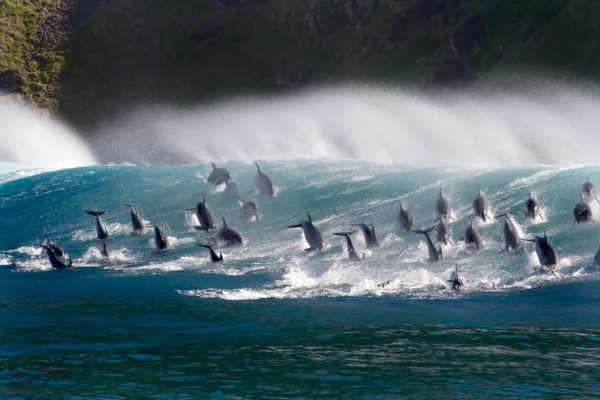
For Blue Planet II, Sir David is to be found on-screen, as well as lending his dulcet tones to the narration. “I didn’t travel a lot, he says. “My job was just producing the words. But I went to Florida, I went to the Caribbean, Trinidad … I went around a bit,” he smiles and raises his arms, pretending to flex his muscles. “The first time I dived there was 1957.” It was the same year he formed the BBC’s Travel and Exploration Unit. By this point, he had already produced the three-part series The Patterns of Animals and presented his first major programme, Zoo Quest.
After venturing to the far corners of the globe, the travel may have lessened but Sir David’s contribution is still essential. During Blue Planet II’s four-year production period, he was in touch periodically with the teams out across the world’s oceans. “Then eventually the films are put together and they come to me with a script,” he explains. “Then I put it into my own words if I think it’s needed. Very often it doesn’t need it at all. But sometimes I think, ‘I would say that in a different way.’ Not necessarily a better way; it’s just the way I talk.”
Six Thousand Man Hours
Antipodean waters are very much a part of Blue Planet II. There are delights – like an indefatigable tuskfish, named Percy by the team, who was found on the Great Barrier Reef, close to Lizard Island. Proving indisputably just how intelligent and resourceful marine creatures are, day after day Percy would swim with a clam in his mouth to a boulder coral, patiently and persistently using the sharp-edged formation like an anvil. Hitting it in exactly the same spot every time, it became the ideal tool to prize open the shellfish.
With the show taking 125 expeditions to 39 countries – that’s 6000 man hours in total – the findings are nothing short of sensational. There is the remarkable scene, also in ‘One Ocean’, in New Zealand waters, which followed around 150 False killer whales alongside several hundred Bottlenose dolphins. A mass hunting party, it was no coincidence; these creatures have been seen together year on year. This was an annual get together in the ocean, a bit of social bonding between two species.
Ask Sir David about any of these and he becomes like the most excitable lecturer you’ve ever met (presumably inherited, his father Frederick was an academic at University College Leicester). He starts talking about a ‘cleaning station’ – the area of a reef where turtles and fish descend and cleaner fish remove dead skin and parasites from their outer layers. “I’m looking at this for the first time, trying to find the right words. And I actually wrote, ‘It’s difficult not to believe this turtle has come here simply to enjoy this; it looks so lovely.’ That’s the line I wrote.”
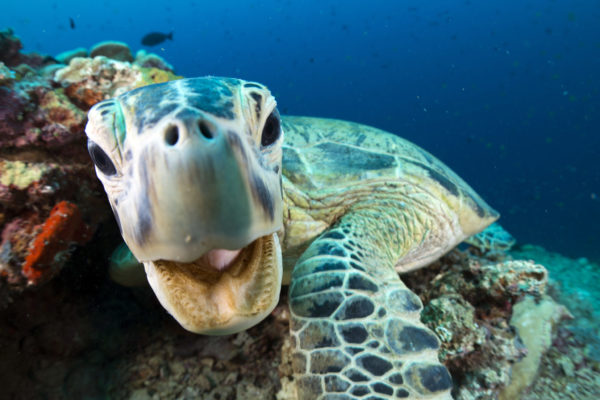
He later discovered just how accurate he was, when he read the script presented to him. “In fact, there is a scientific discovery just recently that fish and turtles come to the reefs not because they’ve got anything on them, but because it’s such a joy after the stress of the reef to lie back and have a facial! In the labs there have been experiments done on fish and they found that in the fishes’ tissue is [the hormone] cortisol, which is a sign of pleasure. So I thought that was just great; it’s not of major importance in the scientific world. But it really engaged me.”
As pleasurable as these moments are, Blue Planet II is a series that carefully acknowledges the environmental crisis our oceans are facing. “There are two huge problems,” says Sir David. “One is increasing temperature [in the oceans] and the second is the pollution, particularly by plastic. It’s important to say that this is not just because one is a biologist and one cares about the natural world … a huge proportion of the human race depends upon fish for food. It’s as though we are destroying our fields, our farms. We are killing the very thing on which we live.”
A Sea of Consequences
The final episode, ‘Our Blue Planet’, promises to explore this theme in depth, looking at the devastating consequences of what happens if the temperature rises by just 1.5°C in the ocean. The very real effect of coral bleaching – already documented in the 2017 movie Chasing Coral – is focused on; as waters warm, corals expel their photosynthetic organisms that provide the vibrant colours, exposing the white skeleton beneath. During the filming of Blue Planet II, it was estimated that more than half the world’s coral reefs were threatened by bleaching.
Global warming, of course, has been increasingly in the headlines – not least earlier this year, when American President Donald Trump controversially announced that the US was going to pull out of the Paris Agreement. Established within the United Nations Framework Convention on Climate Change, this landmark treaty was drawn up in November 2015 between 196 countries. It aims to combat the rise in temperatures by cutting back on the use of fossil fuels and regulating emissions.
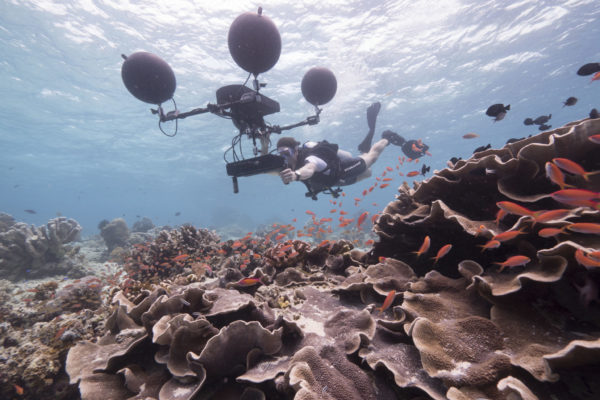
“A lot of scientists and people have been working for this for a long time,” remembers Sir David, who was in Paris for this historic moment. “I remember us coming out of the Paris thing on the last day, and we were all congratulating each other. There were people with tears in their eyes: ‘We’ve got there! After a decade, we got there! Hooray, hooray, hooray!’ And I haven’t been there that long, but I always felt that very much. So that was wonderful.”
When it came to Trump’s recent reversal – which won’t actually come into effect until November 2020 – the naturalist chooses his words carefully. “President Trump said something otherwise … he was a democratically elected man,” he says (in the past, he joked in one interview, that “we could shoot” the incumbent American leader). “It seems as though there is a groundswell within the United States against this proposition that is causing [the] president to maybe modify his opinion. Obviously, I care about this, so obviously I hope he will.”
As for plastic in the ocean, it’s a subject that leaves him apoplectic. “We could actually do something about plastic right now, and I just wish we would … we have seen tragedies happen because of the plastic in the ocean. We’ve seen albatrosses come back with their food for their young, and the parent has been away for three weeks gathering stuff, and what comes out, what does she give to her chick? You think it’s going to be squid. It’s plastic. And the chick will starve and die. We could do things about plastic, internationally, tomorrow!”
He’s not a man to hold back on his opinions. In a recent interview with Greenpeace’s Unearthed website, he held forth on his opinions on the British public’s 2016 vote to leave the European Union. “I’m not an economist, and I certainly don’t understand the political and economic implications of Brexit, but philosophically I would rather people embrace one another than spat in one another’ face,” he said. “All I know is that compared with when the referendum came, I realised it is much more complicated than I thought.”
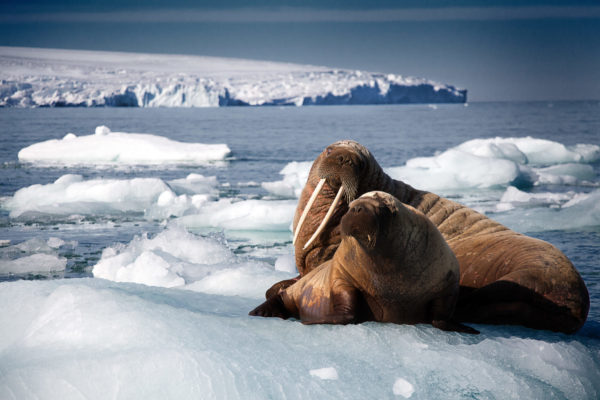
Talking of frank speaking, if there are regrets over his illustrious career, it’s the impact it had on his family. A father of two, Susan and Robert – both now in their 50s – he missed part of their childhood after being away filming for extended periods. “If you have a child of six or eight and you miss three months of his or her life, it’s irreplaceable,” he said recently. “You miss something.” His daughter Susan is now a primary school teacher; Robert is a senior lecturer in biological anthropology at the Australian National University in Canberra.
Based in Richmond, in southwest London, just a few miles from where he was born, Sir David still lives in the house he shared with his wife Jane, whom he met and married in 1950 shortly after he completed two years of national service in the Royal Navy. Jane died of a brain haemorrhage in 1997. At the time, Sir David was in New Zealand filming The Life Of Birds when she went into a coma but he made it back just in time to be with her before she died. He’s also seen his two brothers – film director/actor Richard Attenborough and younger sibling John Attenborough – pass away.
Yet he remains buoyant, a man enthused by his subject and the ever-evolving technologies that allow us to peer further into the natural world. So how does he feel now? “I don’t spend my time trying to work out whether I am optimistic or pessimistic,” he concludes. “I am deeply concerned. That’s what I am. I’m certainly not saying it’s nothing to do with me and why should I care. I care because I’ve got grandchildren. So I do everything I can, when I can, to help in that particular battle. Whether we’re going to win or lose, I will give it as much as I’ve got to make sure we win.”
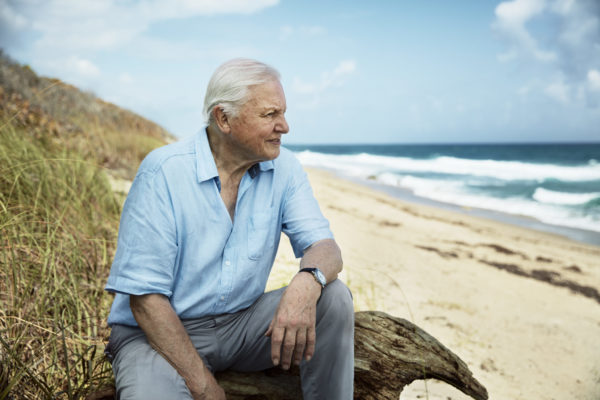
Blue Planet II premieres on Sunday November 12 at 7:30pm on TVNZ 1 and is available for streaming OnDemand at tvnz.co.nz.


